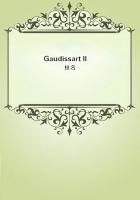In the year of our Lord one thousand four hundred and eighty-one, and but a night or two after the festival of the most blessed Nativity, the inhabitants of Zahara were sunk in profound sleep the very sentinel had deserted his post, and sought shelter from a tempest which had raged for three nights in succession, for it appeared but little probable that an enemy would be abroad during such an uproar of the elements. But evil spirits work best during a storm. In the midst of the night an uproar rose within the walls of Zahara more awful than the raging of the storm. A fearful alarm-cry, "The Moor! the Moor!" resounded through the streets, mingled with the clash of arms, the shriek of anguish, and the shout of victory.
Muley Abul Hassan, at the head of a powerful force, had hurried from Granada, and passed unobserved through the mountains in the obscurity of the tempest. While the storm pelted the sentinel from his post and bowled round tower and battlement, the Moors had planted their scaling-ladders and mounted securely into both town and castle. The garrison was unsuspicious of danger until battle and massacre burst forth within its very walls. It seemed to the affrighted inhabitants as if the fiends of the air had come upon the wings of the wind and possessed themselves of tower and turret.
The war-cry resounded on every side, shout answering shout, above, below, on the battlements of the castle, in the streets of the town; the foe was in all parts, wrapped in obscurity, but acting in concert by the aid of preconcerted signals. Starting from sleep, the soldiers were intercepted and cut down as they rushed from their quarters, or if they escaped they knew not where to assemble or where to strike. Wherever lights appeared the flashing scimetar was at its deadly work, and all who attempted resistance fell beneath its edge.
In a little while the struggle was at an end. Those who were not slain took refuge in the secret places of their houses or gave themselves up as captives. The clash of arms ceased, and the storm continued its howling, mingled with the occasional shout of the Moorish soldiery roaming in search of plunder. While the inhabitants were trembling for their fate, a trumpet resounded through the streets summoning them all to assemble, unarmed, in the public square. Here they were surrounded by soldiery and strictly guarded until daybreak. When the day dawned it was piteous to behold this once-prosperous community, who had laid down to rest in peaceful security, now crowded together without distinction of age or rank or ***, and almost without raiment, during the severity of a wintry storm. The fierce Muley Abul Hassan turned a deaf ear to all their prayers and remonstrances, and ordered them to be conducted captives to Granada. Leaving a strong garrison in both town and castle, with orders to put them in a complete state of defence, he returned, flushed with victory, to his capital, entering it at the head of his troops, laden with spoil and bearing in triumph the banners and pennons taken at Zahara.
While preparations were ****** for jousts and other festivities in honor of this victory over the Christians, the captives of Zahara arrived--a wretched train of men, women, and children, worn out with fatigue and haggard with despair, and driven like cattle into the city gates by a detachment of Moorish soldiery.
Deep was the grief and indignation of the people of Granada at this cruel scene. Old men, who had experienced the calamities of warfare, anticipated coming troubles. Mothers clasped their infants to their breasts as they beheld the hapless females of Zahara with their children expiring in their arms. On every side the accents of pity for the sufferers were mingled with execrations of the barbarity of the king. The preparations for festivity were neglected, and the viands which were to have feasted the conquerors were distributed among the captives.














